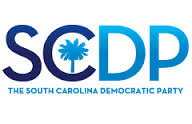Editorial: Religious leaders
from all faiths should consider taking the opportunity to speak out
on a wide range of public policy issues currently being raised and
debated by politicians running in the upcoming 2016 Presidential
Elections. It could prove enlightening. For example:
Immigration - Finding a
reasonable solution to this issue. Do we want to build a wall? Send
all illegal immigrants home, including their children who were born
in the US? Providing a workable plan for many of them to become
legal residents... The candidates for President are currently all
over the board on this issue which effects millions of Hispanic
people already living and working in our country. What would be the
most acceptable solutions for the Christian and other religious
communities to support?
Womens Rights - What
is the right position Christians
should take with regards to
womens rights in the US? The
political candidates are
currently all over the map on
the issues. Do we think
candidates ought to be free to publicly disparage or show disrespect
to women? Do we want to curtail healthcare services for women? Do we
want government to tell a woman she can never get an abortion under
any circumstance? Do we think women's pay across the US is not an
issue? What is the role of a woman in US society today? Tomorrow?
Religious
leaders should probably speak out more about women's rights and
their role in our society.
Environmental Issues -
Stewardship of the planet
seems to be an issue of prime importance to Christians and
other religious believers.
The Pope has spoken out forcefully about the environment, but many
politicians supported by Big Oil promptly
attacked him. What about
practices that are leading to destructive Climate Change? Its impact
on our weather, food,
water, life... Should we encourage drilling for oil in the Arctic
Ocean and off our coasts, continue widespread fracking for oil and
gas... We could use
clear guidance from religious
leaders on this crucial issue. It now
appears our survival
depends on it.
Like
many others, I generally
stop reading an article when it runs past 1 page. So let me just list
some of the other major issues politicians are raising and taking a
stance on heading into the 2016 Election. What are our religious
leaders advising with
regards to sound policies
the community should support with regards to:
Foreign Policy - Sending
US troops into wars around the world? Use of drones by the US to
kill people in other countries? ...
Healthcare - Providing
access to healthcare for all Americans, including the poor, the
elderly...
Voting Rights - Current
efforts by many states to curtail voter registration?
Gay Rights - Their civil
rights with regards to marriage, restricting their access to certain
government and businesses and services ...
Political Campaign Funding -
Allowing unlimited campaign
funding by billionaires and major corporations to support their
candidates?
US Justice & Prison System
- Unfair treatment of black
citizens by police; the world highest rate of imprisonment of
citizens ...
Family Values - Sanctity
of marriage, adultery run amuck, disrespectful behavior, unchecked
greed, immorality in so many forms ...
Equal Rights - Corporate
welfare vs. welfare for poor individuals and families; Big
corporations and billionaires owning 90% of all wealth; excessive
pay of bosses vs. workers.
It could help many
people to make a better choice in the upcoming election if religious
leaders spoke more to some of these major policy issues and the
public positions and behavior of the current crop of political
candidates. They don't necessarily need to talk about particular
political parties, but should focus on public policy issues and the
type of characteristics and behavior we ought to look for in
political candidates from all parties.
What do you think? Should
religious leaders speak out or remain quiet?




